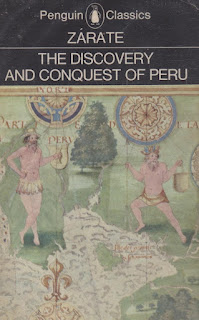 The Mutiny by Julian Rathbone
The Mutiny by Julian RathboneMy rating: 3 of 5 stars
The 1857 rebellion a.k.a the first Indian war of Independence is a point of interest to me and it is fascinating to read about the different people with a different agendas were able to come together for a cause albeit their selfish motives.
So it was with a lot of interest that I picked up this one to read of the rebellion from the perspective of the British people who lived through it. However, I should say the book for all its promises delivered very little.
For some odd reason, the author insists in the prologue and in the Epilogue that the British did a lot of good things (like they sent only about 1% of the tax revenues back to UK) in India and also insisting that it was not a war of Independence. I was not sure how that related to the story other than showing a glimpse of the author's political leanings.
The answer, as some one from the country where the British did so much good is that, the last famine in India was in 1942 in Bengal and since 1947, after independence, the country never had a famine. And I think while the railways and telegraph were good, it was only developed as a means of moving military transport and any civilian comfort from that was just accidental and I do not want to start on the number of native industries that paid the price to keep Manchester and Birmingham in the middle of the industrial world.. While I don't want to be spoiler of the 'good imperialist' philosophy, I cannot let it go unanswered as well.
Now, back to the book, while it documents the historical incidents more accurately, the story just limps along the unfolding of the events. Sophie, Lavanya, Bruce and almost every fictional character wanders all along the Gangetic plains without any purpose other than be at the next battle or siege. That is sad as the initial chapters of the book on the Meerut barracks were well written.
However, the author in his zeal towards the history keeps losing his characters and by extension us, the readers as well. It could've been an excellent spy story with Bruce in the middle or a tragic love story with Sophie and Bruce as the drivers or it could've been a historical rendering of events. It ends up us nothing. That is a pity.
It is still an interesting book overall if you can forgive the plot holes and focus on the history.
View all my reviews


